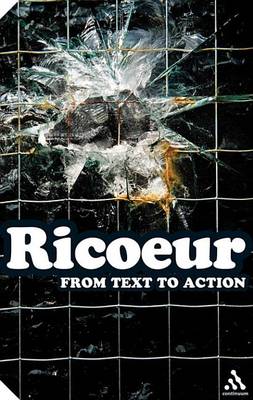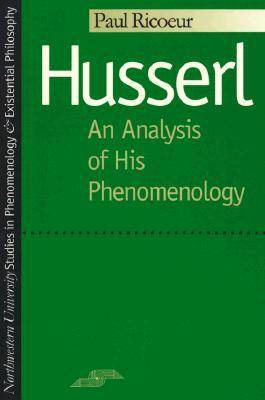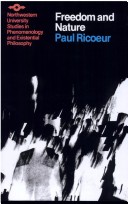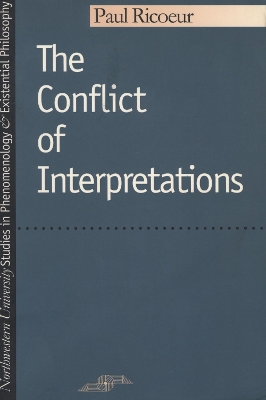Studies in Phenomenology and Existential Philosophy
5 total works
In this volume, Paul Ricoeur investigates the antinomy between history and truth, or between historicity and meaning. He argues that history has meaning insofar as it approaches universality and system, but has no meaning insofar as this universality violates the singularity of individuals' lives. Imposing unity upon truth, or unifying the diversity of knowledge and opinion, creates a singular and universal history but destroys historicity and subjectivity. Allowing for singularities in history promotes a multiplicity of truths over a single, unique truth, and thereby annihilates system.
Paul Ricoeur (1913-2005) was Professor of Philosophy at the University of Chicago and the University of Paris X, Nanterre, and a leading figure in twentieth-century French philosophy.
From Text to Action provides an invaluable companion to Ricoeur's classic text, The Conflict of Interpretations. Here he further develops his general theory of interpretation in relation to his own philosophical background and influences: Hegel, Husserl, Gadamer and Weber. This is a hugely important work from a key figure in contemporary philosophy that will be of interest to those starting out in the field of hermeneutics, as well as those already familiar with Ricoeur's work.
From Text to Action provides an invaluable companion to Ricoeur's classic text, The Conflict of Interpretations. Here he further develops his general theory of interpretation in relation to his own philosophical background and influences: Hegel, Husserl, Gadamer and Weber. This is a hugely important work from a key figure in contemporary philosophy that will be of interest to those starting out in the field of hermeneutics, as well as those already familiar with Ricoeur's work.
Paul Ricoeur was one of the foremost interpreters and translators of Edmund Husserl's philosophy. These nine essays present Ricoeur's interpretation of the most important of Husserl's writings, with emphasis on his philosophy of consciousness rather than his work in logic. In Ricoeur's philosophy, phenomenology and existentialism came of age and these essays provide an introduction to the Husserlian elements which most heavily influenced his own philosophical position.
This volume, the first part of Paul Ricoeur's Philosophy of the Will, is an eidetics, carried out within carefully imposed phenomenological brackets. It seeks to deal with the essential structure of man's being in the world, and so it suspends the distorting dimensions of existence, the bondage of passion, and the vision of innocence, to which Ricoeur returns in his later writings. The result is a conception of man as an incarnate Cogito, which can make the polar unity of subject and object intelligible and provide a basic continuity for the various aspects of inquiry into man's being-in-the-world.
This collection brings together twenty-two essays by Paul Ricoeur under the topics of structuralism, psychoanalysis, hermeneutics, and religion. In dramatic conciseness, the essays illuminate the work of one of the leading philosophers of the day. Those interested in Ricoeur's development of the philosophy of language will find rich and suggestive reading. But the diversity of essays also speaks beyond the confines of philosophy to linguists, theologians, psychologists, and psychoanalysts.




